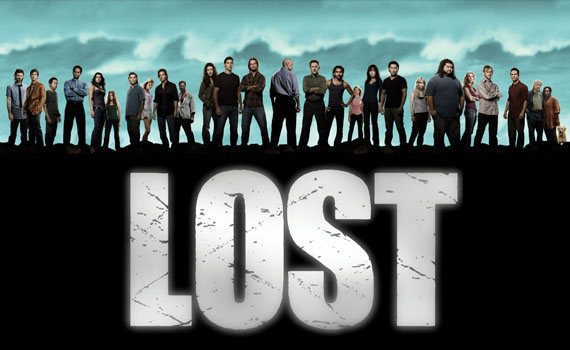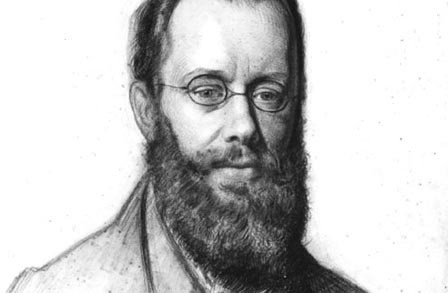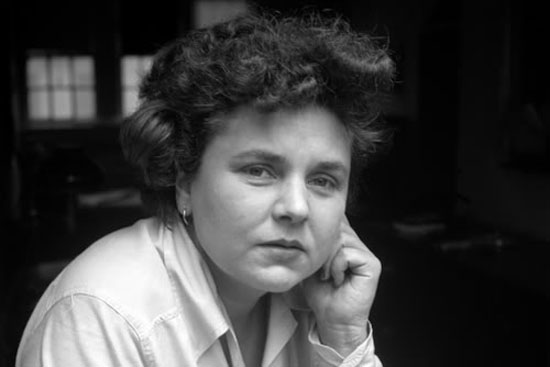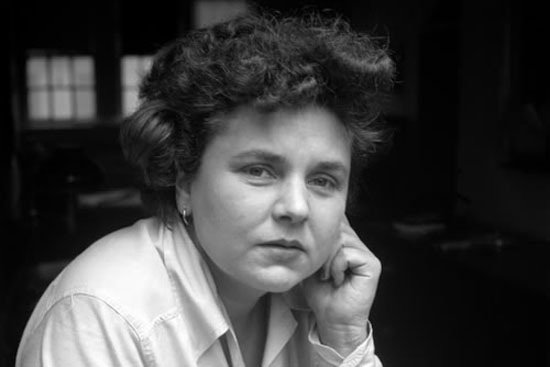Emily Dickinson- Emily Dickinson was a prolific American poetess of the mid 19th century. She was a poetess more out of her free will rather than for a profession. All her poems were anonymously published during her lifetime. It was four years after her demise that she got recognised as one of the most important poets of 19th century America. She lived in solitude, mostly by herself. She wrote about 1800 poems mostly circling around matters of immortality and death. She was no doubt the greatest of American poets who lived a life of simplicity and in an unusual seclusion. She died in 1886.
Poetic devices in The Brain – is wider than the Sky-
Simile:
“As syllable from sound”- Used to associate syllable and sound with the human mind and God.
“As sponges, buckets do”- Brain has been compared to a sponge who absorbs ocean.
Style-
The poem hangs between the form of iambic tetrameter and iambic trimeter, meaning the lines contain four iambs and three iambs respectively.
Summary of The Brain – is wider than the Sky-
The poem commences with a bold statement, claiming that the “Brain – is wider than the sky.” She feels that the brain adds an empowering element to the natural body. The capability of a brain surpasses our understanding. The poetess compares the brain with different natural resources, beholding biblical inclination. But the poet says that a human mind is profound enough to engulf every giant earthly element made by God. The poetess says that if you keep sky and the human mind in the same comparison, the brain will “include” the sky and the reader itself. The poetess is simply stating that a human mind can do wonders. “The sky is the limit” is a false quote according to the poetess. In the second stanza, the poetess is seen comparing the human brain with another natural element – the ocean. The deep blue ocean isn’t deep enough to dissolve human brain, whereas the human brain is capable enough to absorb the sea as a sponge which absorbs the water.
In the third and the last stanza, the poet meekly compares human brain with the weight of Almighty God. She is quite confident in her remark and is seen slamming the religious texts. The poetess loves reading. She is referring to her and any other curious brain for that matter, that they can exceed the limit of any celestial element. So one should just trust their brain to expand with greater knowledge and content. The poetess says that if there is a difference, it is definitely similar to a “syllable from sound.” There can be varied interpretations of this phrase. Here, the poetess means to say that as a syllable a human brain is well structured and informed. Whereas a sound can be anything and anywhere, like God, raw and unrefined.
Critical Analysis of The Brain – is wider than the Sky-
Her poems were published after her death. This saved her from all the controversies that could possibly occur during her lifetime. She was a woman of free will and this is proved continually by her unconventional use of punctuation marks throughout the poem. The poet is stating something imaginary in her poem. The comparison is un-stately but her thoughts are rigid. Her view is fresh but not fragile. She looks at her poems in her own mindset of construction and buildup. The poem is declaring the human mind as an instrument of utmost importance. The curiosity she lives with has made her conclude that if we really recognise our brains as powerful and capacious, we can change our lives.
Tone of The Brain – is wider than the Sky-
The poem has a meek revolting tone, as if the poet wants to go beyond the simplicity of limits. She is discreet and humble yet she comes across as a person who regards nothing beyond the understanding of her mind. The poet has always been a rebel of religious implications.
Conclusion- The poetess is surely not giving literal examples to prove the efficiency of the brain. But the whole idea is to display that nothing can restrict a human brain to evolve or be informative in itself. The poetess is maybe referring to her own orthodox views in religious matters. When she compares human brain with the weight of God, it poses a little contrast with the Catholic views. The poet loved to be in isolation because the people of her time might have a severe problem with her preachings. She doesn’t abide by the rules of the society, her concept of God was different from others. And she could not accept a husband who opposed her nature of free will. She was quite a sorted woman, with a modern mentality even in those times.
Some online learning platforms provide certifications, while others are designed to simply grow your skills in your personal and professional life. Including Masterclass and Coursera, here are our recommendations for the best online learning platforms you can sign up for today.
The 7 Best Online Learning Platforms of 2022
- Best Overall: Coursera
- Best for Niche Topics: Udemy
- Best for Creative Fields: Skillshare
- Best for Celebrity Lessons: MasterClass
- Best for STEM: EdX
- Best for Career Building: Udacity
- Best for Data Learning: Pluralsight
















